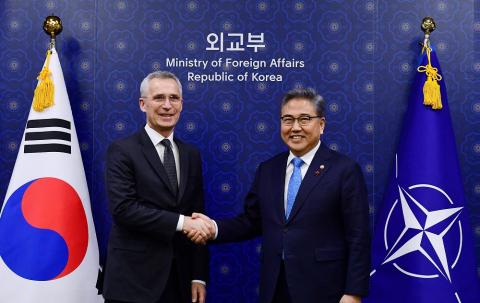
SEJONG — South Korea"s finance minister on Friday called on the Asian Development Bank (ADB) to take a leading role in green and digital transformation in a post-pandemic era, Yonhap reported.
Finance Minister Hong Nam-ki made the remarks during an online conference of ADB members earlier in the day, the ministry said in a statement.
Hong emphasized that the Asia-Pacific region must promote a "green and digital transformation to cope with the COVID-19 and climate change," according to the statement.
Throughout the transformation, the region could create jobs and achieve its goals of economic recovery from the pandemic, Hong said.
In a separate speech, ADB President Masatsugu Asakawa said the regional lender is committed to joining hands with developing economies in Asia and the Pacific to help the region"s economies recover from the pandemic.
"ADB will continue to earn your trust as a steadfast partner during the uncertain times we still face in our region as we build for a strong and lasting recovery," Asakawa said.
In April, the ADB pledged a $20 billion package to help its developing members address COVID-19. So far, ADB said it has committed about $11.2 billion in financial and technical assistance to fight the pandemic.
Meanwhile, the ADB formally endorsed a plan by South Korea to host 56th annual meeting of the ADB in the western port city of Incheon in 2023.
On Thursday, the ADB revealed that it is establishing a regional hub to promote knowledge sharing and strengthen cooperation on tax policy and tax administration across economies in Asia and the Pacific and their development partners.
“I firmly believe that one of the keys to success in achieving the Sustainable Development Goals (SDGs) in a world reshaped by COVID-19 (coronavirus disease) will lie in strengthening domestic resource mobilization (DRM) and international tax cooperation (ITC),” said ADB President Asakawa.
The Regional Hub on DRM and ITC will focus on promoting DRM and ITC through close collaboration among finance and tax authorities of developing economies; international organizations such as the International Monetary Fund (IMF), the Organization for Economic Cooperation and Development (OECD), and the World Bank; and regional tax associations.
Despite many developing economies having maintained strong and steady gross domestic product (GDP) growth in recent years, tax yields have not increased proportionately. Even prior to the pandemic, many economies did not achieve a minimum tax yield of 15% of GDP — a level now widely regarded as the minimum required for sustainable development.
The COVID-19 pandemic has worsened the situation due to increased pressure on economies’ expenditures and a decrease in tax revenue, leaving little room to further increase external borrowing.
Participants in the seminar discussed how governments must balance efforts to raise tax revenues and promote investments that can contribute to a robust recovery from the pandemic, and the need to earn the trust of taxpayers while seeking to increase the tax base.
To improve tax yields in a fair and equitable manner, governments must also cooperate more closely, including to manage aggressive tax planning and combat tax evasion. This requires a higher level of participation in international initiatives such as the Inclusive Framework on BEPS (base erosion and profit shifting) and the Global Forum on Transparency and Exchange of Information for Tax Purposes.
The regional hub will serve multiple functions such as institutional and capacity development, including the exchange of information; knowledge sharing across partners, international financial institutions, bilateral revenue organizations, and developing economies; and collaboration and development coordination across development partners.
It will be an open and inclusive platform, with a focus on South–South policy dialogue. The regional hub will seek to bring together practitioners from tax policy bodies as well as tax administration bodies of developing economies to achieve meaningful progress in tax reform.
The synergy created in this hub will ensure strong value addition and effectiveness in the implementation of necessary reforms.
In establishing the hub, ADB will also mainstream DRM and ITC in its operations such as technical assistance and policy-based lending to help governments enhance their capacity for DRM and adoption of international tax standards. — Agencies










